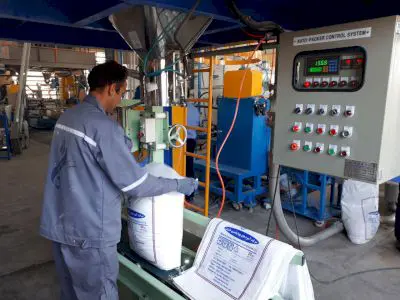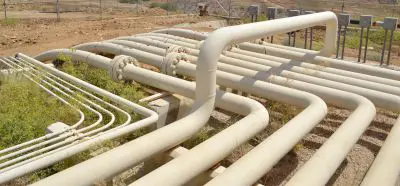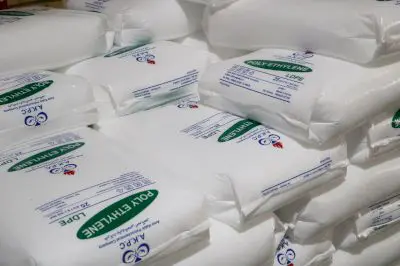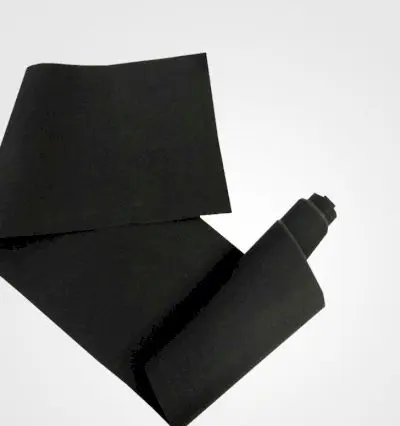Petrochemicals Prices in Iraq
Iraq still goes through a state of instability due to the internal sectarian conflicts, the international and territorial power struggles. The Middle East is one of the most important hubs in the petrochemical industry. Iraq is a very diverse country socially and culturally and demographic and cultural characteristics is an important issue regarding exports to Iraq. production of polymers and granules in our petrochemical is very important
Add your import and export orders to this list
Warning: Undefined variable $formTitle in /home/anbar/domains/anbar.asia/anbar/inc/html/desktop/orderform.php on line 10
Warning: Undefined variable $marketName in /home/anbar/domains/anbar.asia/anbar/inc/html/desktop/orderform.php on line 12
Warning: Undefined variable $location in /home/anbar/domains/anbar.asia/anbar/inc/html/desktop/orderform.php on line 12
If you want to trade in the , please join in Anbar Asia. Your order will be shown here, so the traders of contact you

Road, sea, air and fright shipments are various methods of sending cargo to Iraq. our petrochemical industry has many phases of production of crude oil products. Iraq's most important export is oil. Countries such as China and India have the highest oil purchases from this country. Petrochemicals are chemical products from the processing of oil and gas
- Iraq Polypropylene Market
- Iraq Acrylonitrile Butadiene Styrene Market
- Iraq resin Market
- Iraq Polybutadiene Market
- Iraq Nylon Market
- Iraq Styrene Butadiene Rubber Market
- Iraq Ethylene Market

Therefore, with a closer look at this issue, it can be understood that the production of polymers and granules in our petrochemical is very important. Currently, the largest imports of petrochemical industries are in the form of granules, because these products are not found naturally and must be produced.
Read More ...
In 1795, ethylene gas was called olefin gas. The first synthesis of ethylene gas compounds (dichlor and ethane) was performed in 1795 by a Dutch chemist. In the middle of the 19th century, because C2H4 had a lower hydrogen than C2H5 ethyl, suffixes (ene) of Greek origin were added to the end of ethyl, and after that olefin gas is called ethylene gas.
Read More ...
Polypropylene has been able to replace engineering polymers and even metal parts in industrial applications due to its easy acceptance of high amounts of various fillers and reinforcements, and as a result, a wide market has been opened for it. In addition, alloying with other polymers has diversified the grades and applications of this polymer. polypropylene is used in:
Read More ...
In general, the presence of the following properties makes styrene butadiene rubber superior to other similar materials.
Read More ...
Iraq covers an area of 437,072 square kilometers (58th country in term of area, nearly a quarter of Iran). Most of Iraq is lowland and tropical. The west of Iraq is a desert and the east is a fertile plain, but part of Iraqi Kurdistan (northeast) is mountainous and cold. Iraq is also one of the largest oil-rich countries. The country has 143 billion barrels of proven oil reserves.
Read More ...There are three key reasons why the development of a world-class petrochemicals (petchems) sector is vital to Iraq’s future. Third, Iraq has the natural resources of both oil and gas that can make it a world leader in the petchems sector. This in turn would allow it to develop major trade with the big buyers of petchems products in Asia relatively independent of Iran, which would allow it to put more political distance between Baghdad and Tehran and this would encourage more sustained investment from the U. Recent developments in Iraq may portend such development of the petchems sector, with the long-stalled Nebras project being a prime beneficiary at last. The recent tentative deal with Total, if finalised, will provide a major boost to the equally long-delayed efforts to meaningfully make use of Iraq’s massive associated gas resources. Official estimates are that Iraq’s proven reserves of conventional natural gas amount to at least 3. 5 percent of the world’s total, placing Iraq global with around three-quarters of this figure comprising associated gas. Although at the moment it is only a deal – alternatively known as a ‘letter of intent’ agreement – that is not binding, and may yet become derailed by the sort of concerns over corruption that have deterred many other foreign firms from doing business in Iraq, it may be that Total sees a growing presence in Iraq as a promising substitute for its forced withdrawal by the U. (Sinopec) is to take a 49 percent stake in the Mansuriya non-associated natural gas site, provides Iraq with a solid base upon which to move the development of its petchems sector into the next phase. The core project that allows for the development of the petchems industry in Iraq is the US$17 billion 25-year Basra Gas Company (BGC) project with Royal Dutch Shell that began in 2013. A joint venture between Iraq’s South Gas Company (SGC), holding 51 percent, Shell (44 percent), and Mitsubishi Corporation (5 percent), the BGC currently captures associated gas from the three major oil fields of Rumaila, West Qurna 1, and Zubair. In December 2018, BGC reached a peak production rate of 1035 mmscf/d, the highest in Iraq’s history and sufficient gas to generate approximately 3. BGC currently supplies 70 percent of Iraq’s LPG, and through expansion of its export capabilities, helped turn Iraq from a net importer to a net exporter of LPG as from 2017. Interestingly, and a sign of what can be achieved in Iraq – given the huge resources but without any of the usual dodgy dealings – BGC and CitiBank signed a first credit agreement in February 2019, the first commercial loan extended by CitiBank to an Iraqi corporate entity. Given this, the focus of Iraq’s petchems push has long been the Nebras petrochemical complex. The original design plans for Nebras – formulated between Shell and the Iraq Ministry of Oil and Ministry of Industry and Minerals in 2012 - were for a project that could produce at least 1. 8 million metric tonnes per year (mtpa) of various This would make it Iraq’s first major petrochemicals project since the early 1990s and one of only four major petchems complexes across the entire country. The others - Khor al-Zubair in the south, Musayeb near Baghdad, and the Baiji refinery complex in the north – are operated by Iraq’s State Company for Petrochemical Industries. In January 2015, Shell released the statement that Iraq’s cabinet had authorised the Nebras project and that the company would work ‘jointly with the Ministries of Oil and Transport to develop a joint investment model for a world-scale petrochemical cracker and derivatives complex in the south of Iraq’. The then-Industry Minister, Nasser al-Esawi, told a news conference at the time that the Shell-run Nebras petrochemical complex would come online within five to six years and would make Iraq the largest petrochemical producer in the Middle East. From 2012, though, the head of petrochemicals projects for a major international oil company operating in Iraq exclusively told OilPrice. com: “The development of Iraq’s hydrocarbons chain stalled in the upstream – and mainly crude oil – sector, with little impetus on the next stage that’s critical for both the petrochemical and refining sectors, which is a focus on the midstream to attract sufficient capital with the strategic objective of developing an integrated master gas system. “Ethane needs to be the initial feedstock for Iraq’s first few plants in the same way that it was in the development of Saudi Arabia’s master gas system that captured associated gas, which was then fractionated and supplied as primary feedstock to the flagship Jubail Industrial City,” he underlined. “The highest concentration of ethane [10 percent plus] is usually found in associated gas streams, which Iraq has a lot of, and processing ethane produces ethylene with few by-products [mainly fuel gas] to process and manage,” he told OilPrice. “This reduces the capital required for construction and minimises the complexity of the logistics and distribution requirements, which will be important factors in Iraq’s early stage build-out of a viable petchems industry, but as the industry and corresponding infrastructure grows, heavier feed streams can be utilised, as happened with the use of propane, butane and naphtha in Jubail,” he said. this would need to be a sustainable and reliable supply for at least 20 to 25 years and, to build out all of the necessary parts for a functioning world-class petchems sector in Iraq would require around US$40-50 he concluded. As at the end of August, 2020, current Oil Minister, Ihsan Ismaael, stated that Iraq aims to ‘speed up plans’ for [Nebras] with Shell.
Read More ...
Iraq to ramp up refining capacity by more than 80,000 b/d in 2021: oil minister. Iraq wants to wean itself off product imports. Iraq is OPEC's second largest producer. Dubai — Iraq plans to ramp up its refining capacity by more than 80,000 b/d in 2021, oil minister Ihsan Ismaael said Feb. Iraq plans to invite international oil companies to help build a 300,000 b/d refinery in the south of the country, Ismaael said Nov. Iraq doubled late last year doubled the capacity of the Baiji refining complex to 140,000 b/d and the ministry wants to return the facility to the original 280,000 b/d capacity in the next few years. Iraq continues to import gasoline and gasoil to fulfill its domestic needs as much of its existing refining capacity is old and dilapidated or still being rehabilitated. In January, Iraq pumped 3.
Read More ...
Browse Research Middle East Iraq All Categories Heavy Industry Materials & Chemicals Chemicals Petrochemicals Region: Petrochemicals . The "MoO/RDSB – Nebras Petrochemical Facility – Iraq Project Profile" is part of . The "MoO/RDSB – Nebras Petrochemical Facility – Iraq" is part of Timetric's database . (MENAFN- ChemAnalysts) According to ChemAnalyst report, Market Analysis: Plant Capacity, Production, Operating Efficiency, Demand & Supply, End Use, Distribution Channel, Regional Demand, 2015-2030”, Petrochemical market has shown considerable growth in historic period and is anticipated to achieve a healthy CAGR of 4. As the demand of Petrochemicals is rapidly increasing in the petrochemical industry for the manufacturing of numerous products including plastics, cosmetics, medicines, furniture, appliances, electronics, solar power panels, wind turbines etc, it is likely to augment the growth of global Petrochemicals market in upcoming years. The production of Petrochemicals is highly linked with safety standards on human health as well as environment which further increases the compliance standards. Petrochemicals are usually extracted from hydrocarbons such as propane, ethane, butane, or other components that are derived from crude oil and natural gas liquids. Naphtha, a mixture of flammable hydrocarbons is an important product made from Other petrochemicals that have numerous applications in the commercial and industrial market include Propylene used in the manufacturing of paints, furniture; Benzene is used in the electronics, food packaging, etc. Oil and gas industry contributes to the major consumption of Petroleum which further propels the market growth of the Growing demand of petrochemical products by various end-use industries including packaging, automotive, textile, FMCGs and construction sectors is expected to bolster the petrochemicals market growth over the next 5 years. Petrochemicals are universal along with their increasing usage across daily life applications. , and its adoption as a clean-burning fuel in transports is likely to spur the global petrochemicals demand in coming years. Additionally, the consumption of detergents and textile fibers along with ever changing consumer preferences is driving the global market of Petrochemicals through 2030. Based on the type, C2 & C3 derivatives altogether held more than 48% of the global petrochemicals demand share. The sectoral demand triggered tremendous growth in the global petrochemicals industry due to growing consumption of engineered plastics, medical plastics, packaging films and many other end-use industries. In 2020, due to the outbreak of COVID-19, the Global petrochemicals industry was negatively impacted which further impacted the global industrial production of In longer terms, it is anticipated that boost in the global petrochemicals demand as several economies are expanding their capacities to invest in latest manufacturing technologies which would further accelerate the market growth in the forecast period. Region wise, APAC region holds the largest share of Petrochemicals market worldwide followed by North America and Western Europe. Due to increasing mergers and acquisitions along with massive capacity addition in the coming years in order to support the tremendous hike is propelling the Asian petrochemicals demand. According to ChemAnalyst report, Market Analysis: Plant Capacity, Production, Operating Efficiency, Demand & Supply, End Use, Distribution Channel, Regional Demand, 2015-2030”, some of the major players operating in global Petrochemicals market include LyondellBasell Industries N. “Being linked to the downstream applications in consumer electronics, detergents, thermal insulation and others, the global Petrochemicals Industry has shown a healthy growth along with increasing macro-economic factors and shifting consumer preference. The authorities’ restrictions due to the novel coronavirus affected the global supply chain logistics and caused immediate shortage of feedstock chemicals hence increased the prices of With new competitors emerging across the Asian Petrochemicals market, it is extremely important to keep a focus on which region will grab the biggest market share in the coming years.
Read More ...
The State Company for Petrochemical Industries has announces to all manufacturers and producers companies registered inside & outside of Iraq and all investor s to participate in below project according to the technical specification and commercial conditions which could be obtained from our company at Basra Khor Al-Zubair against non-refundable amount of (2,000,000) Iraqi diners […]. 8 million mt/year of various using naphtha as a feedstock. The National Investment Commission (NIC) has announced six new investment opportunities in Iraq: New Housing Compounds, Ministry of Water Resources Lime plant in Karbala, Iraqi Cement State Company plant in Khor al-Zubair, State Company for Petrochemical Industries Industrial and medical gases, Al-Zawraa State Company Chlorine plant in Muthanna, General Company for […]. Saudi Basic Industries Corp (SABIC) is in talks to join Iraq's Nebras petrochemical project, according to a report from Reuters. An advisor to Prime Minister Haider al-Abadi told the news agency at the CWC Iraq Petroleum Conference in Berlin that talks are at advanced stage at ministerial level. Iraq's Ministry of Oil has awarded the Al Faw [Al Fao] refinery and petrochemicals project to two Chinese companies. Saudi Arabian companies have signed 18 agreements with the Iraqi government to jointly develop several key projects in the energy sector. The statement from the Iraqi Oil Ministry gave little detail, but quotes the Saudi Minister of Energy Khalid Al-Falih as saying that Saudi companies are keen to develop relations with Iraq, […]. Iraq has reportedly contracted Japan’s Toyo Engineering to help build a gas pipeline to Kuwait and a petrochemical plant as Baghdad. According to a report from Reuters, the move will help Iraq to reduce flaring and finish paying the reparations owed to Kuwait for the invasion in 1990. Oil giant Shell is trying to sell its stake in the Majnoon oilfield (pictured) in southern Iraq, following a failure to reach agreement with Iraq's Ministry of Oil. A Shell spokesman told UAE-based newspaper The National: “Following extensive discussions with the Ministry of Oil, the oil minister of Iraq formally endorsed a […]. of Oil has announced the offering of a new investment refinery in Basra province. The facility at Fao [Faw] city will have a capacity of 300 thousand barrels/ day, and will be capable of being extended to produce the Russia’s Lukoil is in talks with Shell and Total regarding their participation in a petrochemical complex in southern Iraq. The Iraqi side supports our efforts. " He added that Iraq […]. A spokesman for Iraq's Ministry of Industry and Minerals has said that the ministry is about to finalise a partnership contract with French company Total to set up a giant in Basra province. Abdul Wahid al-Shammari made the comments following a visit by the company's representative in Baghdad. © 2021 Iraq Business News.
Read More ...
https://www.spglobal.com/platts/en/market-insights/latest-news/petrochemicals/020821-iraq-to-ramp-up-refining-capacity-by-more-than-80000-bd-in-2021-oil-minister
https://oilprice.com/Energy/Energy-General/Will-Iraq-Become-A-Petrochemicals-Powerhouse.html#:~:text=There%20are%20three%20key%20reasons%20why%20the%20development,of%20its%20fellow%20OPEC%20members%2C%20especially%20Saudi%20Arabia.

